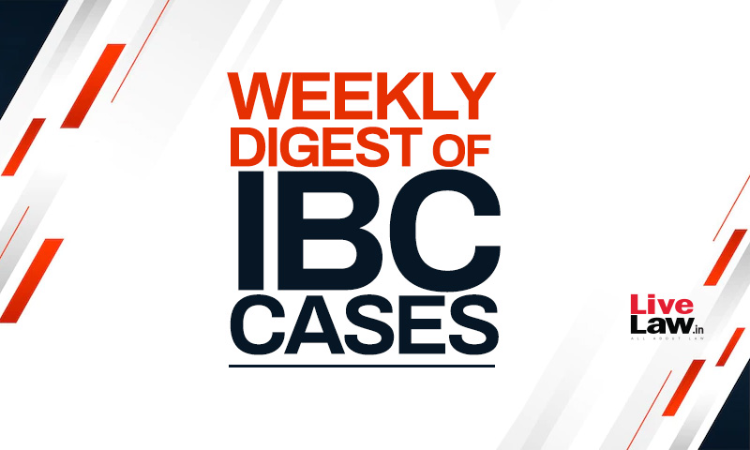Weekly Digest Of IBC Cases: 1st October To 7th October 2024
Mohd Malik Chauhan
20 Oct 2024 5:15 PM IST

Next Story
20 Oct 2024 5:15 PM IST
Nominal Index 1. Tushar Sharma v. State Bank of India, Cr. MMO No. 924 of 2023 2. Gateway Investment Management Services Ltd. v. Reserve Bank of India and Ors., 2024 LiveLaw (Del) 1092 3. Su-Kam Power System Ltd. and Anr. v. State of Himachal Pradesh and Ors., CWP No.422 of 2024 4. M/S Patanjali Foods Limited (Formerly Ruchi Soya Industries Limited)...
